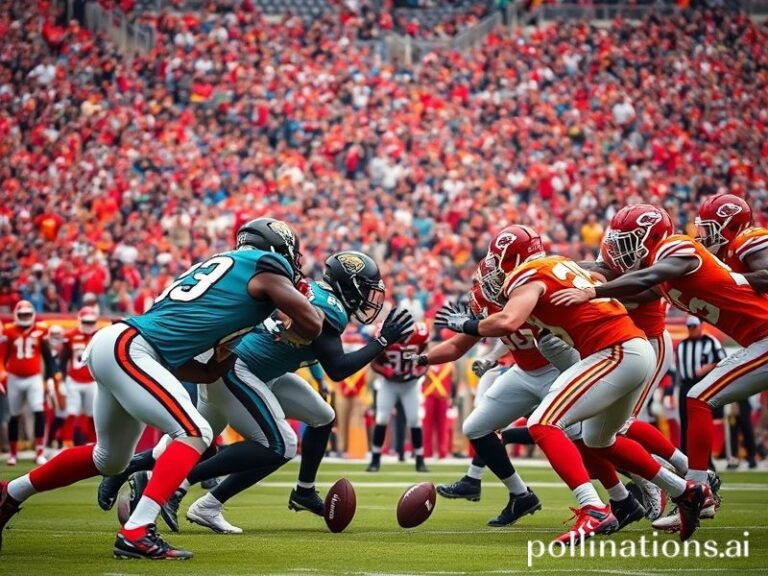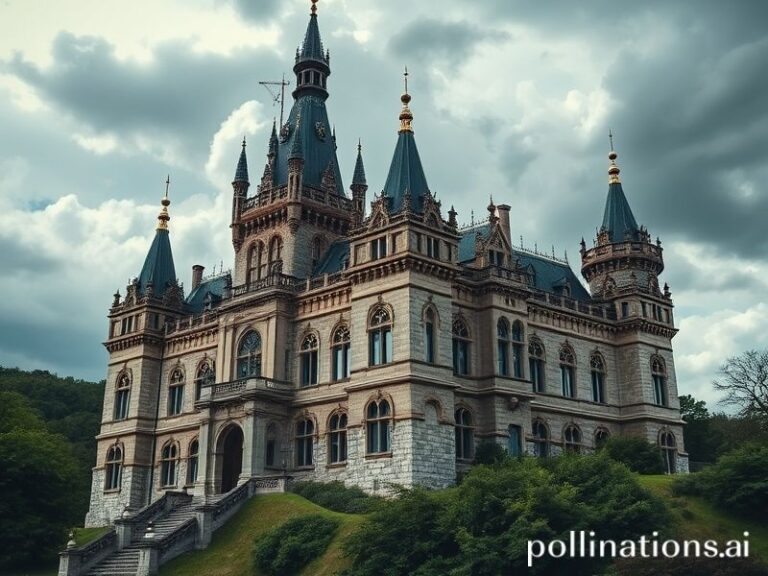Scottish Premiership: The World’s Coldest Classroom for Global Chaos
The Scottish Premiership: A Cold, Damp Mirror Held Up to the World
By Our Correspondent, freshly thawed after a Glasgow night bus
Somewhere between the North Sea and the North Atlantic lies a league that is routinely mistaken for a weather report. The Scottish Premiership—twelve clubs, four seasons in one afternoon, and the global economy’s most efficient way to convert hope into pneumonia—doesn’t so much compete with the English Premier League as haunt it like a Presbyterian ghost rattling its collection tin.
Yet beneath the gallows humour and the pies that double as caloric suicide notes, the competition has become an improbably accurate barometer for the wider world. When Celtic and Rangers lock horns in the Old Firm derby, foreign-policy wonks in Washington still perk up: the fixture reliably spikes sectarian keyword searches from Virginia to Vladivostok, reminding analysts that ancient grievances travel faster than fibre-optic cable. Meanwhile, the broadcast rights sold to fifty-odd countries suggest that nothing sells quite like the televised spectacle of two Glaswegian neighbourhoods arguing over who owns the superior 19th-century grievance.
If football is the new opium of the people, Scotland has cornered the market on especially damp opium. But the narcotic is laced with geopolitics. Since 2016, when the Brexit referendum turned Britain into an open-plan nervous breakdown, Scottish clubs have quietly retooled as finishing schools for the EU talent surplus. Spaniards, Nigerians, and the occasional homesick Dane wash up on Clydeside shores, their wages paid in pounds that fluctuate like a drunk on Sauchiehall Street. Every sliding-tackle statistic is thus also a foreign-exchange derivative—proof that globalisation can infiltrate even a league whose winter advertising boards still flog local funeral parlours.
The league’s competitive imbalance—Celtic and Rangers have shared every title since the invention of disappointment—should by rights make it a sporting cul-de-sac. Instead, it has become a laboratory for late-capitalist absurdity. Celtic’s annual Champions League group-stage exit is now as ritualised as Japanese tea ceremony, only with more existential dread. Rangers’ 2012 liquidation and resurrection under a new corporate entity offered the world a masterclass in how to rebrand bankruptcy as “institutional reincarnation,” a trick since imitated by American retail chains and minor Greek political parties.
Viewed from afar, the Scottish Premiership resembles a micro-nation whose chief export is schadenfreude wrapped in tweed. Australian insomniacs tune in for the 3 a.m. kick-offs just to feel better about their own A-League. Qatar’s beIN Sports carries the matches as a cautionary tale: “See what happens when you don’t build air-conditioned stadia?” Silicon Valley data scientists scrape the league’s notoriously erratic xG models to stress-test their predictive algorithms—because if the code can survive Hibs on a windy February night, it can survive anything short of nuclear winter.
Still, the league’s most subversive act is simply persisting. While the super-leagues of Europe plot cartels in Swiss boardrooms, Scottish football continues to operate on a business model that is part civic religion, part pyramid scheme, and wholly allergic to daylight. Its very mediocrity is a rebuke to the slickly marketed monopolies elsewhere: a reminder that sport, like democracy, can still be ugly, inefficient, and gloriously resistant to optimisation.
So when the lights go up at a half-empty Fir Park on a Wednesday night, and the drizzle begins its sideways assault on human dignity, take a moment to salute the scene. There, in the fluorescent glow, you will witness humanity’s stubborn refusal to admit that the universe is indifferent. The Scottish Premiership may not save the world, but it will happily delay the apocalypse until the final whistle—assuming the referee hasn’t been carried off by hypothermia.
Conclusion: In an era when every entertainment product is focus-grouped into beige submission, Scotland’s top flight remains gloriously off-key—an underfunded opera about mortality set on a frozen pitch. It is both punchline and prophecy: proof that even on the periphery of Europe, the beautiful game can still afford to be beautifully, catastrophically human.







